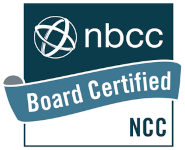Receive support for your mental health today for a happier and brighter life!
Book 15-Minute FREE Consultation!
Welcome to WiseMind Counseling
You are probably here because either you or someone you love is suffering from some mental health or behavioral issue. You are at the right place. Just the act of ‘looking’ is setting the intention of moving towards health. It is the first and most important step towards helping yourself to a better future.
Most people come to therapy because they are in some way disconnected from their true, authentic selves. Many have been disconnected since childhood; others from more recent experiences. In order to feel good about ourselves, and our place in the world, we need to reconnect with our authentic selves,
our WiseMinds.
My Therapeutic Approach
Therapy is a collaborative process. Scientific evidence suggests that the most important aspect of therapy is the relationship between the client and the therapist. Therefore I offer a free 15 minute phone consultation to make sure that you feel comfortable with me, and I that I am the right therapist for you.
In building a safe and supportive relationship, I offer a non-judgmental space where behaviors, thoughts and feelings can be explored without fear of being judged or shamed. Developing an awareness of your strengths and your emotional resources will alter unhealthy patterns, and increase feelings of self-worth and self acceptance. As a result you will learn new ways to approach problems, by viewing them through a new, healthier and more authentic lens.
It would be an honor to help guide you there.

Individual Therapy
Addiction
C-PTSD
feeling of loneliness.

Deborah Beriro
LMHC
Deborah Beriro graduated summa cum laude with her Master of Science degree in Applied Psychology and Mental Health Counseling from Lynn University in Boca Raton FL, and received her B.A. degree from American University in Washington, D.C. (International Studies and Art History.) Deborah is a Nationally Certified Counselor (NCC) and is licensed in the state of Florida as a Licensed Mental Health Counselor (LMHC). Deborah uses an eclectic approach, as she has extensive trainings in multiple psychotherapeutic modalities. She believes every individual is different and she does not subscribe to “one size fits all” medical treatment approach.
My Expertise
Depression/Anxiety
Read More
Mood disorders
Read More
Mood disorders are a group of mental health conditions characterized by significant and persistent changes in a person’s emotional state or mood. These changes can include periods of depression, irritability or a combination of both. Common mood disorders include major depressive disorder, bipolar disorder, and seasonal affective disorder.
Attachment Disorders
Read More
Borderline Personality Disorder/Complex PTSD
Read More
Substance/Alcohol use disorder
Read More
Family Recovery
Read More
Case Management
Read More
Soberlink Monitoring
Read More
Couples therapy
Read More
Divorce/Life Transition
Read More
Co Parenting
Read More
Attachement disorders/Family of Origin-ACOA-Complex..
Read More



